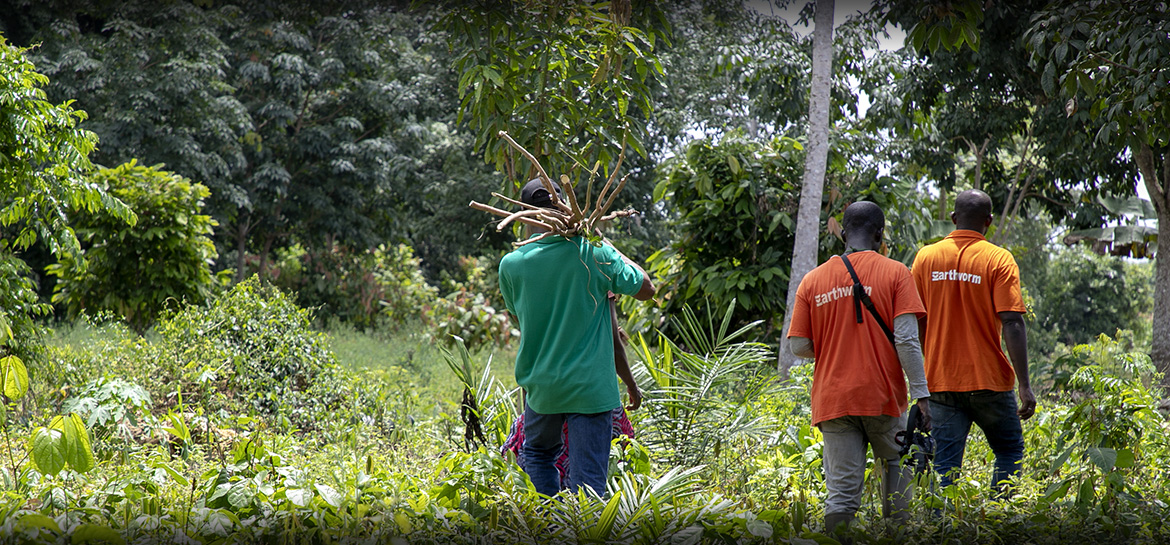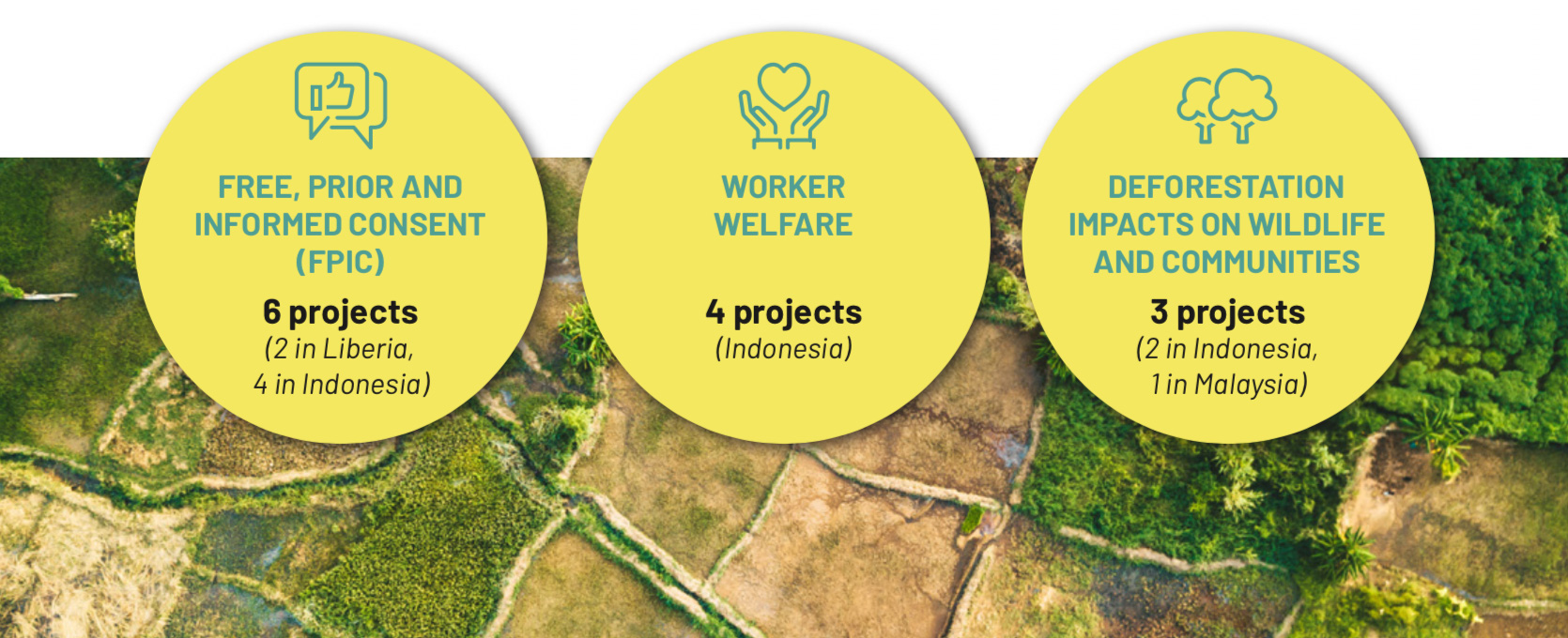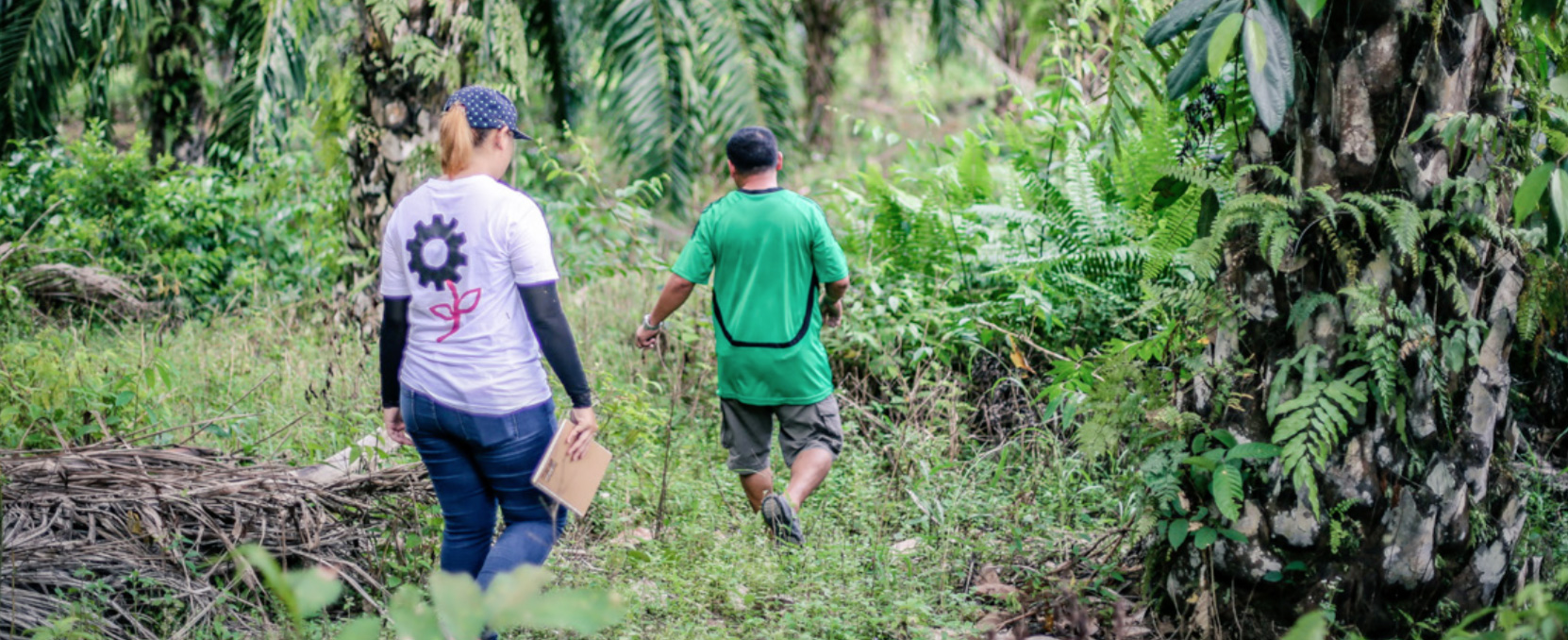
Strategy
We work to accomplish our mission through two major data-gathering channels: signals and deep monitoring. We then seek to translate data into actionable recommendations and transmit those recommendations to those who can implement them.

Signals
Kumacaya has developed an online platform that allows CSOs and community members to anonymously report ‘incidents' – good or bad – that they encounter on the ground. Several criteria must be included for the signal to be taken into consideration. These include a description of the incident, the topic (e.g. workers' rights, deforestation, etc.), the related commodity (e.g. palm oil, pulp and paper, etc.), a GPS point, and evidence (e.g. a picture or voice recording, timeframe or other documentation). These data points enable Kumacaya to track trends and understand where further investigation is needed. We began developing the signalling platform in June 2019 as a way to empower civil society to guide the theme (e.g. worker welfare, deforestation, land rights issues, water pollution, etc.) of deep monitoring projects, which had previously been set by companies. To date, we have gathered more than 1,000 signals in the pilot area of Riau, Indonesia. The work is now poised to expand to East Kalimantan and Aceh provinces in Indonesia, with further expansion to Liberia, Ivory Coast and Ghana slated to start in 2020.
Deep monitoring
On basis of the signals, Kumacaya launches calls for ‘deep monitoring' projects. In response to the calls, CSOs submit applications that are anonymised immediately. An independent panel of experts then selects the best of these anonymised proposals to receive Kumacaya funding. The funded CSO begins monitoring, spending a minimum of 6-months working in the area, building trust with the locals, triangulating information and ground- truthing the signalling data, and analysing the drivers of any challenges. CSOs submit monthly reporting, with a longer final report at the end containing suggestions for improving practices. During the reporting process, Kumacaya's field experts are available to help CSOs when needed to improve their reporting capacity and their ability to make actionable recommendations. Anonymised reports are submitted to investors who can then act on them.



Actions
Looking ahead, we envision supply chains where companies and civil society organisations work and take action together. We know that improving this relationship can help unlock immense – and currently untapped – potential to protect and enhance people's lives and the surrounding environment. To that end, Kumacaya is working to operationalise and expand a network of international CSOs that can also respond to deep monitoring reports and seek to implement solutions, as well as to form stronger linkages via the Earthworm Foundation to companies seeking to rid their supply chains of deforestation and exploitation. The objective of this third pillar is to translate data into actionable recommendations coming up from CSOs themselves or co-created with CSO with support of EF.

Lessons learnt
The path to launch the signalling platform and operationalise deep monitoring has not always been straightforward. But the last two years have allowed the Kumacaya team to glean key learnings for how to speed and scale our impact going forward.
These include:
Lessons for working with local CSOs and communities,
Lessons for working with international companies,
Lessons for Kumacaya's structure and organisation.










